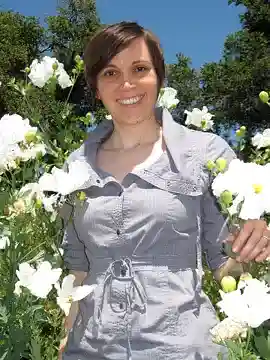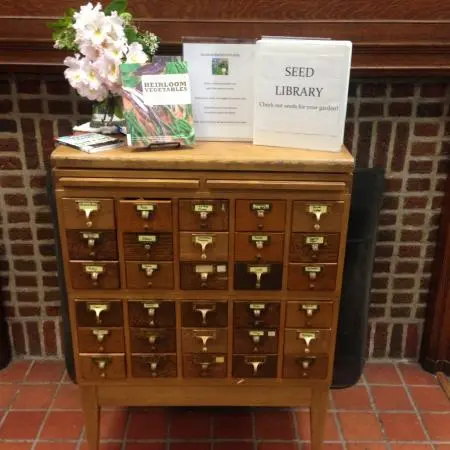Header via
Librarians, always looking to push the envelope. Makerspaces, Go clubs, Drag Queen Story Hour, and now... seed libraries. What newfangled thing will they come up with next? If you were like me last season and didn't think about putting in food plants until May when it was already freaking hot, the time to get smart is now! Thankfully, as always, libraries have us covered.
Okay, let's start with the concept of seed libraries. Seed libraries have been around in one iteration or another for as long as humans have been growing crops. The process is fairly simple. After a season of growing food plants, the farmer selects the plants that produced the best food. "Best," of course is subjective. It could mean the sweetest, tastiest, most drought-resistant, most pest-resistant, most beautiful, most high yield, etc. etc. The farmer then allows those plants to go to seed (or allows the seeds to fully mature) and collects the seeds to store for the next season.
This was how agriculture worked from the beginning of civilization until the 20th century, when big agriculture started interfering with this process. Now many large-scale farmers have to buy seed every season instead of just setting aside part of their crop for seed saving. Small scale farmers and individuals like myself who play around with growing food plans don't have to worry about this, thankfully. However, our collective move from rural to urban areas means we as a society have gotten out of habit with seed saving. It's so easy to go to your local greenhouse or farmer's market and get plant starts, which is great for procrastinators (me), but keeps us in a never-ending cycle of reliance on others to maintain and grow seeds.
It also limits the biodiversity in our regions. The plant starts at Home Depot are going to be bred to tolerate large quantities of pesticides, a quality I don't need in my food plants because I grow organically. They are also the same plants you'll find at every store around the county. If you want to grow Hidatsa Shield beans from North Dakota or Boothby's Bonde cucumbers from Maine, you're going to have to start them from seed. There are all kinds of interesting regional varieties of fruits and vegetables, from ground cherries to alpine strawberries. Why not expand your palette and also help the environment? The World Wildlife Fund and Knorr foods just launched a campaign to increase the diversity of the foods we eat. It turns out that when the world eats the same three plants all the time—wheat, corn, and rice—it endangers wildlife and precious ecosystems.
And that's where libraries come in. BASIL, the Bay Area Seed Interchange Library, is credited as the first seed library in the United States. Since it was started in 2000, hundreds have popped up around the country and around the globe. The concept is simple: members are allowed to "check out" seeds with the understanding that after growing plants from the seeds, some seeds will be saved and returned to the library. It's a very long loan period! Seed libraries are maintained by all sorts of organizations, from community gardens to public libraries. Would you believe that the old card catalogs are the perfect size for seed packets? So versatile! You can find your closest seed library in the Seed Libraries list.
Hopefully, I have piqued your interest enough for you to consider planting something more compelling and genetically diverse than whatever green thing they have for purchase at your hardware store. And if you can't find a seed library in your city or town, start your own! Seed libraries bring communities together. Because we all have to eat, right?

About the author
Stephanie Bonjack is an academic librarian and musician who lives and works on the Colorado Front Range. She teaches the relentless pursuit of information, and illuminates the path to discovery. She has presented at national and international library conferences, and is especially interested in how libraries evolve to serve the needs of 21st century patrons.








